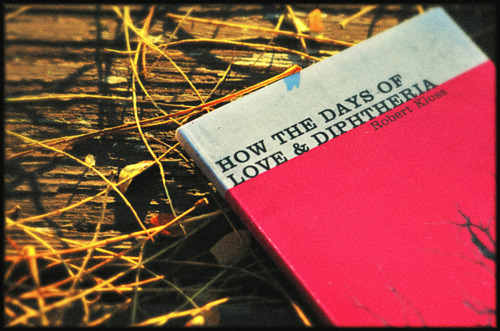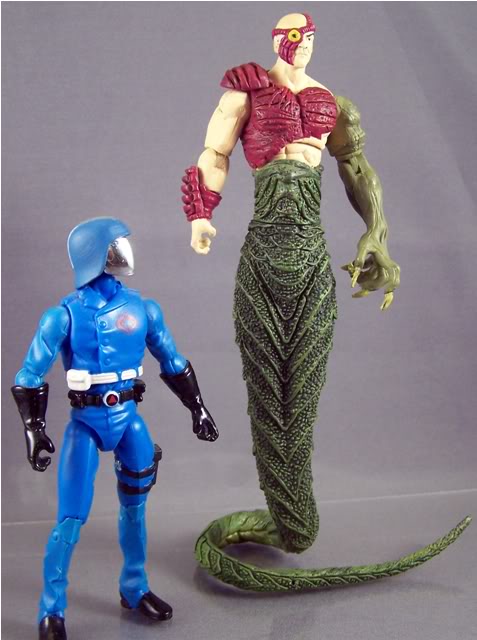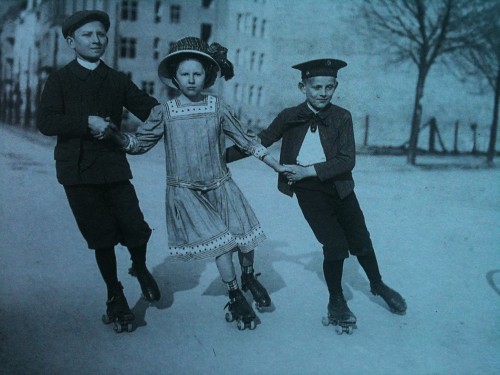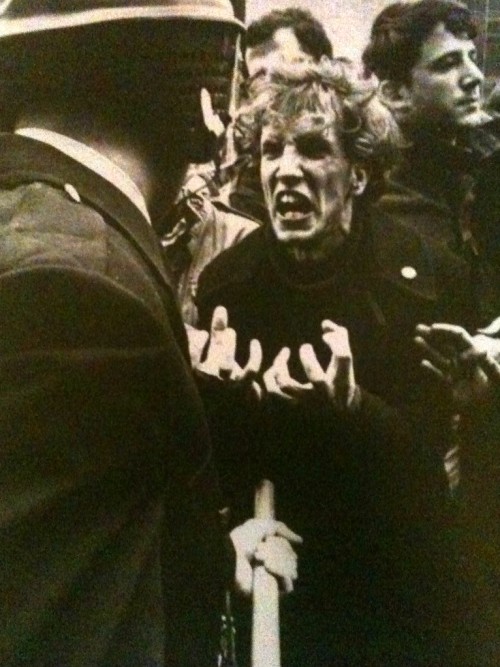Gulogulo
Due to the recent turn of events in the Occupy movement — by which I mean it is turning into a movement, not only because of the fact it is literally moving but because the real test of a movement occurs when the opposition tries to purge it — I feel obliged to do my small part in suggesting a word for what the occupiers are against. Perhaps you think there are existing words to describe what is opposed; and this is true, of course, there are lots of words; among them: corporate greed, economic disparity, banking malfeasance, shady lending, bullshit, derivatives, the 1%, fat cats, motherfuckers, etc. But consider for a moment that prior to 1944 there was no word for genocide. The explanation for this is simple, genocide was not a word — no one had thought to make it up. There were some other words to describe what was going on, such as: holocaust, perfidy, atrocity, burning people alive, etc. But, as there was no word for genocide, this made it difficult to discuss or wrap one’s head around what it meant when one race wanted to destroy another; that’s why Raphael Lemkin coined the term genocide, from the latin genus (a race) and –cide (to kill).
So I would like to offer up the term gulogulo. It’s a clunky word, I know, but so is the greasy sect it describes. It can easily be modified to wield as an adjective, e.g., “I just saw some gulogulous assclown punch a flower child in the face.” Gulogulo evokes the tyranny of the Gulag, the brutality of a masculinized Caligula, the monstrosity of the half-man, half-snake G.I. Joe villain Globulus (who gets his name from globule, a particle, often of fat, or, in astronomy, “a small dark cloud of gas and dust seen against a brighter background”); but most importantly it is a compound version of gulo gulo, a fun way to say wolverine. Gulo is latin for glutton, and in many parts of Europe wolverines are commonly known as gluttons — like fierce-ass war pigs.
words and a napkin
1. This audio interview (The Lit Show) with Martone is sort of great. It sprawls about and then, at the half hour, writers and teachers Rachel Yoder, Dylan Nice, and Zachary Tyler Vickers join the conversation. A lot of glow here on regional writing, teaching writing, experimental writing, etc. Worth a listen.
2. Christopher Grimes goes:
Like life itself, writing and reading can be really boring. Reading boring writing, writing boring stuff.
14. This is not a bible verse. This is that amazing hangover essay from a while back in the The New Yorker:
3. Philip Hunt on creativity.
4. You can get a wine-speckled bar napkin signed by Peyton Manning for 10 dollars.
All of My Desire to be Involved: An Interview with Robert Kloss

Robert Kloss is the author of How the Days of Love & Diphtheria (Mud Luscious Press/Nephew) and The Alligators of Abraham (Mud Luscious Press, 2012). He is found online at rkbirdsofprey.blogspot.com.
Jackson Nieuwland: This is my first time being a ‘real’ interviewer. I’ve interviewed people before but they were pretty close friends of mine and I just posted the conversations on my blog. I don’t know you that well and hopefully this interview will be published somewhere cool. I enjoy interviewing, the finished product often feels like a significant achievement. I’m going to try and continue with my personal ‘style’ of interviewing here by asking you questions in bunches to be answered together and putting myself into the interview a bit (you are encouraged to ask me questions if the urge takes you). Have you been interviewed before? Have you interviewed people before? Do you have any interest in the artform of the interview? Do you read many interviews? What sorts of interviews do you prefer? Text? Audio? Video? What are your thoughts on each medium? Have you watched any of Nardwuar’s interviews? Do you have any favourite interviewers? Do you have any favourite interviewees? Are there any types of questions you particularly like or dislike?
Robert Kloss: I’ve interviewed a few people but I never really felt too comfortable with the process. It was fun and the writers I interviewed were very good to give their time and thoughts, but I don’t know that I had a knack for the form. I think a good interviewer is curious and is open to a certain process of discovery and I’m afraid I’m just not a very curious person. And, when it comes to people, I’m at the opposite of curious–the thoughts and particular cares or wants of a certain person just aren’t interesting to me anymore. So I don’t read or watch too many interviews. I don’t even read the letters or journals of famous writers anymore. Even if the conversation is profound (and they rarely are) I’m not sure I get much out of it. It wasn’t always like this. I used to watch Charlie Rose, for instance, because I was interested in World Figures. And I used to read interviews with filmmakers and composers and writers I admired. But I’m just not terribly curious anymore. That said, there are some people, some writers, who take the interview and turn it into a real art, a sort of extension of their work, and I do find that interesting/readable. Partly because I’m new to the idea of presenting myself to the wider world, and shaping that image in a certain way. But partly because while the mundane thoughts and opinions of some stranger aren’t terribly interesting, that stranger’s art probably is. I feel like any writing worth much is a reflection of the truest part of the writer anyhow so why shouldn’t the writer present themselves as what they are, a reflection of their art? READ MORE >
This is the only Christmas record allowed in my house: Agoraphobic Nosebleed “Make a Joyful Noise”. Eat.




